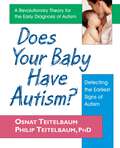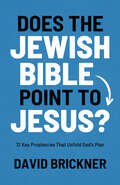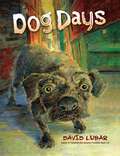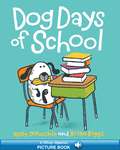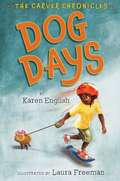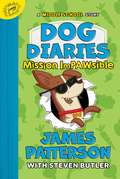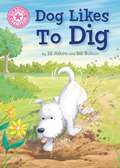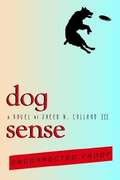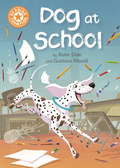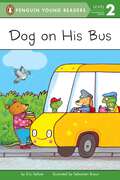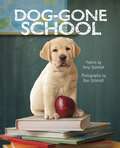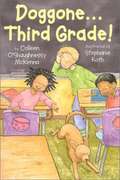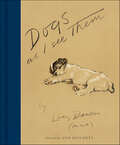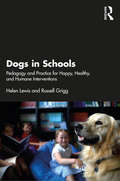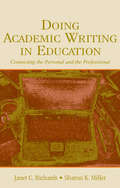- Table View
- List View
Does Your Baby Have Autism?
by Philip Teitelbaum Osnat TeitelbaumFor many years, the diagnosis ofautism has centered on a child's social interaction—from poor eye contact tolack of language skills. Although the autism community agrees that earlyintervention is key to effective treatment, the telltale signs of this disorderusually don't reveal themselves until the age of two or three. But what if itwere possible to detect the potential for autism within the first year of life?That is the basis of Osnat and Philip Teitelbaum's book, Does Your Baby Have Autism?This dedicated wife-and-husband team has worked for nearly two decades to develop ways of detecting signs of potential autism or Asperger's syndrome by examining a child's early motor development. By studying the patterns of righting, sitting, crawling, and walking in typical infants, and comparing them with those of children who were later diagnosed with autism, the authors have been able to pinpoint movement patterns that appear to be the precursors of autism and Asperger's.Does Your Baby Have Autism? first provides general information aboutthe history of autism, followed by a discussion of The Ladder of MotorDevelopment. Each of four chapters then examines one motor milestone--righting,sitting, crawling, or walking--contrasting typical development with atypicaldevelopment so that it's easy to recognize unusual patterns of movement. Also included is a unique thirty-second Tilt Test--easy toperform at home--which helps reveal a balance problem characteristic ofchildren with autism. Finally, parentsare guided in finding professional help for a child whose motor skills mayindicate a problem.There is a way to detect signs of autism early in a child's life, when therapy can do the most good. Does Your Baby Have Autism? holds the key to a brighter future for children and their families.
Does Your Family Make You Smarter?
by James R. FlynnDoes your family make you smarter? James R. Flynn presents an exciting new method for estimating the effects of family on a range of cognitive abilities. Rather than using twin and adoption studies, he analyses IQ tables that have been hidden in manuals over the last 65 years, and shows that family environment can confer a significant advantage or disadvantage to your level of intelligence. Wading into the nature vs. nurture debate, Flynn banishes the pessimistic notion that by the age of seventeen, people's cognitive abilities are solely determined by their genes. He argues that intelligence is also influenced by human autonomy - genetics and family notwithstanding, we all have the capacity to choose to enhance our cognitive performance. He concludes by reconciling this new understanding of individual differences with his earlier research on intergenerational trends (the 'Flynn effect') culminating in a general theory of intelligence.
Does the Jewish Bible Point to Jesus?: 12 Key Prophecies That Unfold God's Plan
by David BricknerHow will we be able to recognize the Messiah? Christians claim that Jesus is the Messiah, but how can we know if that is true? Jesus revealed the truth about himself through passages in the Torah, the Prophets, and the Writings—which together comprise the Tanakh (the Old Testament). In Does the Jewish Bible Point to Jesus?, Messianic Jewish author David Brickner likewise guides us through twelve prophecies from all three sections of the Tanakh to show:why God promised a Messiah.how God planned to bless the whole world through the Jewish people.the location and strange circumstances of the Messiah's birth.how and why the Messiah would suffer and die.how the Messiah would exceed human limitations . . . and more.You&’ll also find stories of contemporary Jewish people who discovered compelling connections to Jesus in their own Bibles.Whether you&’re curious, skeptical, or a committed believer—if you are in search of truth, this book is for you. Come and see how God&’s timeless plan to redeem and renew the world still shines as a beacon of hope today.
Dog Days (Exceptional Reading And Language Arts Titles For Intermediate Grades Ser.)
by David LubarLarry can't stop thinking about the growling dog in the alley. He already has three strays in his backyard. How can he afford to take care of another one? When his brother Paul points out a strange mark in the alley, Larry has a mystery to solve. What is the dog protecting? What is really going on in that dark alley?
Dog Days of School
by Kelly DiPucchioCharlie thinks his dog, Norman, has got it good: he gets to spend his days lounging on the couch or playing fetch, and he never has to do any homework. But when Charlie makes a wish to be a dog instead of a boy, things get a little topsy-turvy! New York Times best-selling author Kelly DiPucchio's signature humor and Brian Biggs's bold, playful illustrations come together in a hilarious tale that proves that the grass always does look greener on the other side (even if that side involves drinking from the toilet!).
Dog Days: The Carver Chronicles, Book One (The Carver Chronicles #1)
by Karen English Laura FreemanIt's tough being the new kid at Carver Elementary. Gavin had lots of friends at his old school, but the kids here don't even know that he's pretty good at skateboarding, or how awesome he is at soccer. And when his classmate Richard comes over and the boys end up in trouble, not only does Gavin risk losing his one new friend, he has to take care of his great aunt Myrtle's horrible little dog as punishment. To make matters worse, Gavin seems to have attracted the attention of the school bully. Will he be able to avoid getting pounded at the skate park? And how is he ever going to prove he's cool with a yappy little Pomeranian wearing a pink bow at his side?
Dog Diaries: A Middle School Story (Dog Diaries #1)
by James PattersonThe first book in the doggone awesome, howl-ariously illustrated, bestselling series from the creator of Middle School! Rafe Khatchadorian&’s lovable dog Junior gets his chance to shine. Oh boy, oh boy, oh boy! I've been waiting for ages to tell my story, and now it's finally happening! Being Rafe's dog isn't always easy, but it is always EXCITING! I've got so much to tell you about: How I protect the yard from birds, raccoons, squirrels, raccoons, mail carriers ... and did I mention RACCOONS? Sniffing pooch posteriors for the latest canine news. And the terrifying monster hiding in the hall closet: the vacuum cleaner! These were all the most paw-some parts of my doggie life -- until the evil Mrs. Stricker threatened to send me back to the pound if I didn't learn to behave. Now Rafe and I have to go to obedience school and win the trophy for Best Trained Dog . . . or else!
Dog Diaries: A Middle School Story (Dog Diaries #3)
by James Patterson Steven ButlerGrab your sunglasses and slather on the sunscreen! In this laugh-out-loud adventure for kids and animal lovers everywhere, summer is here and Junior is getting his very own doggy vacation.It's me, Junior, back again with another tail-wagging tale of mischief-making! I'll tell you all about the fur-raising time I had when my pet humans went on a trip without me, and the horrible place they left me. Here are some of the adventures I had:How I survived on a diet of icky vegetables, with no yummy, drool-inducing meat in sight!My super-secret plan to steal delicious hamburgers!How my pooch pals and I cooked up a grand scheme to break free and get back home. It's a dangerous mission, but as I always say, you can't keep a good dog down!
Dog Goes to Nursery School
by Lucille HammondLittle Dog wants to stay home and play; but his mother says that he must go to school.
Dog Likes to Dig: Independent Reading Pink 1A (Reading Champion #91)
by Jill AtkinsReading Champion offers independent reading books for children to practise and reinforce their developing reading skills.Fantastic, original stories are accompanied by engaging artwork and a reading activity. Each book has been carefully graded so that it can be matched to a child's reading ability, encouraging reading for pleasure.Independent Reading Pink 1A stories are perfect for children aged 4+ who are reading at book band 1A (Pink) in classroom reading lessons.In this story, Dog will not stop digging! What will he do when he finds what he has buried?
Dog Sense
by Sneed B. Collard IIIAfter he and his mother move from California to Montana to live with his grandfather, Guy gradually adjusts to the unfamiliar surroundings, makes a friend, and learns to deal with a bully, with the help of his Frisbee-catching dog, Streak.
Dog Show Disaster (Faithgirlz / Princess in Camo #3)
by Missy Robertson Jill Osborne Mia RobertsonIn the third book in the Princess in Camo series—Dog Show Disaster—just maybe, reality TV star Allie Carroway is in over her head! When Allie is unanimously elected by her schoolmates as the Student Project Manager of this year’s end-of-the-year school carnival and fundraiser she is excited. Her friends and family love her idea of having a dog show as part of the festivities and know it will be the perfect way to raise money for the local animal shelter.But almost immediately things start going haywire. Big and small disasters start to happen, one after the other, and soon Allie cannot imagine how the Ouachita Middle School Bark Fest can possibly be a success. But with the super support of the Carroway cousins, family, and friends, and a strong faith and trust that God knows exactly what is needed and when, things start to turn around … but not without a few hurdles, including a bit of bullying and rivalries, along the way!This third book in the Faithgirlz Princess in Camo series is the perfect addition to this unique storyline about a fun and faith-filled family in a world of class and camouflage.
Dog at School: Independent Reading Orange 6 (Reading Champion #159)
by Katie DaleIn this fun story, a dog runs into school and causes all sorts of trouble. Then he runs to the head teacher's office. Everyone thinks the head teacher will be very cross, but will he? Reading Champion offers independent reading books for children to practise and reinforce their developing reading skills.Fantastic, original stories are accompanied by engaging artwork and a reading activity. Each book has been carefully graded so that it can be matched to a child's reading ability, encouraging reading for pleasure.Independent Reading: Orange stories are perfect for children aged 5+ who are reading at book band 6 (Orange) in classroom reading lessons.
Dog on His Bus (Penguin Young Readers, Level 2)
by Eric SeltzerIt's a busy day on Dog's downtown bus! Ride along with adorable animal passengers as Dog diligently drops everyone off at their silly stops. After a long day, and even a popped tire, Dog still loves his job. Dog on His Bus is a fast-paced Level 1 reader with rhyming text, memorable characters, and sweet illustrations!
Dog-Gone School
by Amy SchmidtThis photographic book of school-themed poems is sure to delight dog lovers and poetry fans alike. As they did in the companion title, Loose Leashes, this husband-and-wife team combine his photographs with her poetry for a whimsical marriage of images and words.
Dogerella (Step into Reading)
by Maribeth Boelts Donald WuDOGERELLA SPENDS HER days scratching the fleas and fluffing the tails of her ungrateful stepdog mother and mean stepdog sisters. At night, she dreams of a home where she is loved. In a nearby castle lives Bea, a sweet, slightly spoiled princess whose fondest wish is for a loyal pet to call her own. A dog's dream and a princess's wish come true in this funny fairy tale.
Doggone It! (Katie Kazoo Switcheroo #8)
by Nancy KrulikWhen strict Mrs. Derkman moves next door to third-grader Katie Carew, scares her friends away, and insists she keep her dog, Pepper, on a leash, Katie finds a non-magical solution to the problem. Includes steps for teaching a dog to sit and stay.
Doggone... Third Grade!
by Colleen O'Shaughnessy MckennaThird-grader Gordie is not only having problems with his best friend, he also has to teach his not-so-smart dog some tricks for the upcoming school talent show.
Dogmagic
by Holly WebbMagical powers, a talking dog, and a gaggle of chatty pink mice? Lottie's life at Grace's Pet Shop is definitely unexpected. Lottie and her dachshund Sofie have just discovered they share a magical connection when it's time for Lottie to start her new school. All is not well at Netherbridge Hill Elementary. A gang of mean girls makes it clear to Lottie that they run the school. She only has one ally, her new best friend, Ruby. But will even Ruby stick around if she finds out about Lottie's secret magical abilities?
Dogs & Puppies: Discover Your Inner Artist As You Explore The Basic Theories And Techniques Of Pencil Drawing (Drawing Made Easy)
by Nolon StaceyAn easy-to-follow guide to drawing canines, from sketching bodies, faces and hair to creating animal portraits of a favorite pet.Many aspiring artists want to draw a portrait of their best friend—especially where their pal has four paws and fur! This newest addition to the Drawing Made Easy series pairs our best-selling medium with the wildly popular subject of dogs and puppies. Unlike similar titles on the market, this book doesn’t simply provide a collection of dogs for artists to re-create exactly. Instead, the book focuses on techniques specific to drawing accurate depictions of dogs and puppies—from creating a variety of fur types and features to achieving accurate proportions—so that artists can use the knowledge to render their own canine portraits. The book also includes a series of easy-to-follow, step-by-step projects showcasing a range of dog breeds, poses and props. This allows artists to practice their developing skills, guiding them from simple sketches through the study of various techniques to polished renderings.
Dogs As I See Them
by Lucy DawsonA BELOVED CLASSIC FOR DOG LOVERS OF ALL AGESWith a new foreword by Ann PatchettIn the 1930s, Lucy Dawson’s friendly, sympathetic portraits of dogs were so popular with readers of American and British magazines that she agreed to gather them together in a book, Dogs As I See Them.Now available once again after being out of print for decades, and a complete replication the original 1936 edition, Dogs As I See Them includes all of Dawson’s irresistible graphite and pastel drawings and handwritten notes. Along with her illustrations are her own amusing stories about the conduct of each of her subjects as they posed for her. Her charming reminiscences interpret the character and mood of each dog, and make us friends at once with each and every one in this gallery of endearing portraits. Dogs As I See Them is a remarkable collection dog lovers of all generations will take to their hearts.
Dogs in Schools: Pedagogy and Practice for Happy, Healthy, and Humane Interventions
by Helen Lewis Russell GriggUsing a wealth of infographics and classroom examples, Dogs in Schools sets out the pedagogical principles that schools can employ to work with school dogs in a way that promotes the well-being of all participants and creates a safe environment for all. This is the first book to combine theory and research with the views of experienced teachers and professionals working around the world, from the United Kingdom to India, from Australia to mainland Europe. Their perspectives illustrate the wide-ranging interest in school dogs but also highlight common concerns. For policymakers, this is a book not to ignore because it shows how dogs have the potential to make a significant contribution to children's well-being at a time of growing concern in this area. Simultaneously, the authors endorse the views of contributors who call for the introduction of humane regulations and fulsome guidance so that school dogs are viewed as sentient companions and not relegated to the latest educational fad. This is a must-read book for all those who are serious about humane education and ensuring the well-being and happiness of both children and dogs.
Dogs in Schools: Pedagogy and Practice for Happy, Healthy, and Humane Interventions
by Helen Lewis Russell GriggUsing a wealth of infographics and classroom examples, Dogs in Schools sets out the pedagogical principles that schools can employ to work with school dogs in a way that promotes the well-being of all participants and creates a safe environment for all.This is the first book to combine theory and research with the views of experienced teachers and professionals working around the world, from the United Kingdom to India, from Australia to mainland Europe. Their perspectives illustrate the wide-ranging interest in school dogs but also highlight common concerns. For policymakers, this is a book not to ignore because it shows how dogs have the potential to make a significant contribution to children's well-being at a time of growing concern in this area. Simultaneously, the authors endorse the views of contributors who call for the introduction of humane regulations and fulsome guidance so that school dogs are viewed as sentient companions and not relegated to the latest educational fad.This is a must-read book for all those who are serious about humane education and ensuring the well-being and happiness of both children and dogs.
Dogs on the Trail: A Year in the Life
by Blair Braverman Quince MountainPlease note this is a fixed format ebook. Type size and other formatting features on your eReader are not usable on this file. Your device should allow you to enlarge an individual paragraph by double clicking it. Once you have done so, you may be able to further zoom in and use the “turn page” feature to move to the next paragraph, depending on your device. A delightful photographic journey into a year in the life of a team of sled dogs, based on Braverman’s wildly popular Twitter feedWhen Blair Braverman started posting pictures of her dog team on Twitter, she had no idea the response she would get. Being a musher, after all, isn’t just about racing—raising dogs from puppyhood to retirement (and beyond) is a full-time job. She and her husband, musher Quince Mountain, wanted to share stories about life with their dog team. And not just the big stuff, like expeditions and wild animal encounters, but also the everyday things: the challenge of storing a thousand pounds of raw meat, scouting new trails with the dogs, the decisions that go into putting a team together, how she trains puppies to be brave. These were goofy stories, scary stories, heartfelt stories, stories that clearly connected with people and kept going viral.Inspired by those connections, Dogs on the Trail is a chronicle of a year in the life of their dog team. Beginning in the fall as the weather starts to cool, training on both dry land and in the snow, then camping and racing. Spring brings mud—lousy for sledding, but the dogs love it. And summer is the season of puppies. The book ends on a beginning, in anticipation of the adventurous lives that the new pups have in store.An irresistible adventure, Dogs on the Trail will delight and entertain while taking you inside a musher’s world, and showing you why the wilderness isn’t simply a place to visit but also a home to return to.
Doing Academic Writing in Education: Connecting the Personal and the Professional
by Janet C. Richards Sharon K. MillerThis clear, reader-friendly book is carefully designed to help readers gain confidence and acquire competence in their academic writing abilities. It focuses on real people as they write and actively involves readers in the writing process. The authors' innovative approach encourages reflection on how professional writing initiatives connect to the personal self. For pre-service and in-service teachers, graduate students, school administrators, educational specialists, and all others involved in the educational enterprise, effective writing is important to professional success. Organized to help the reader move progressively and confidently forward as a writer of academic prose, Doing Academic Writing in Education: Connecting the Personal and the Professional features: *activities to engage readers in connecting their writing endeavors to their personal selves, and in discovering their own writing attitudes, behaviors, strengths, and problem areas; *practical applications to inform and support the reader's writing initiatives--including opportunities to engage in invention strategies, to begin a draft, to revise and edit a piece of writing that is personally and professionally important, and to record reflections about writing; *the voices of the authors and of graduate students who are pursuing a variety of academic writing tasks--to serve as models for the reader's writing endeavors; and *writing samples and personal stories about writing shared by experts in various contexts--offering hints about conditions, self-reflections, and habits that help them write effectively. All students and professionals in the field of education will welcome the distinctive focus in this book on connecting the personal and the professional, and the wealth of practical applications and opportunities for reflection it provides.
